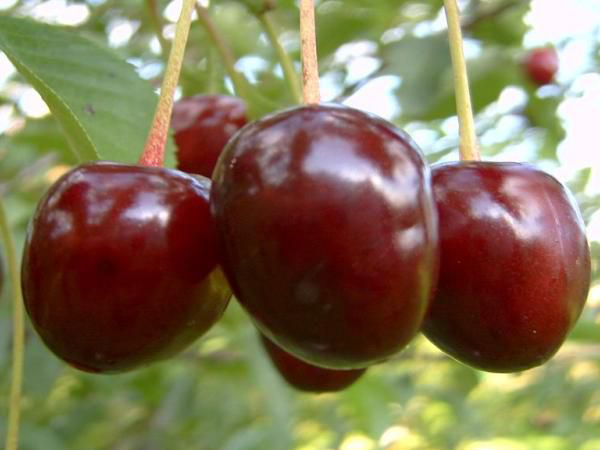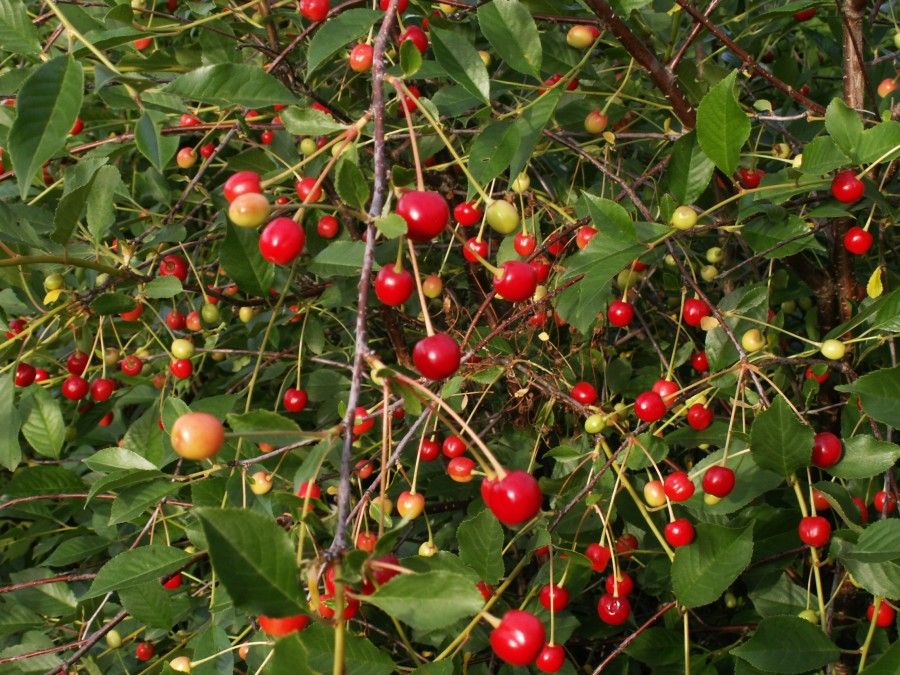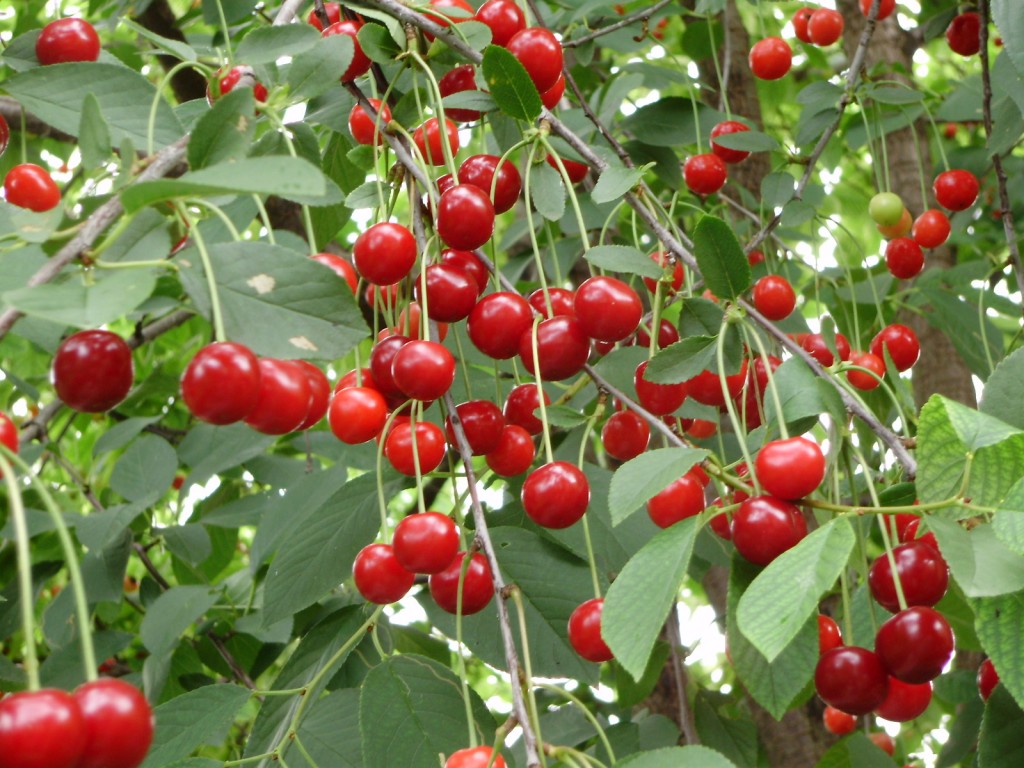Outlandish dwarf cherry - care
Sometimes the gardener is faced with a difficult task: he wants to set up a garden, but the plot is small. Dwarf trees and shrubs will help out. Recently, they are gaining more and more popularity. Dwarf cherry in particular has many advantages over other fruit trees.
Content
Description of the species
A low-growing cherry has a lot of advantages:
- takes up less space;
- grows faster;
- bears fruit earlier than usual varieties;
- much easier to harvest;
- easier to care for;
- suitable for windy climates, since branches break less;
- small roots will not reach the groundwater;
- produces the same amount of fruit as a large tree.
Among the disadvantages: smaller berries of different tastes. They are not as sweet as those of ordinary cherries, they are even tart.
Among the types of cherry dwarfs there are such: Chinese, Vladimir, Saratov baby, chocolate, youth, quickie, Japanese, and others.

The undersized cherry is a dwarf bush. Sprawling, lush, fast-growing, very beautiful. The maximum height is 2.5 meters, the average is 70 centimeters. Begins to bear fruit faster than usual. High yield - 10-20 kilograms of berries per season. Fruits are small or medium - up to 5 grams in weight. They are densely located on the branches. Color: bright red to dark. Taste: sweet and sour. Berries in some varieties have an unusual, bizarre shape. For example, take a look at the photo of the fruits of a dwarf cherry.
Among other characteristics: frost resistance, excellent adaptability to various weather conditions. What is important - the crop is suitable for long-term transportation.
Growing
Climate
Care and cultivation of dwarf cherries does not have any special features. The main thing is to choose the right variety for the climate. For severe northern weather, only cold-resistant varieties are taken. In the southern regions of Ukraine, Crimea, Kazakhstan, trees with an average resistance to frost are planted.
If the species is chosen incorrectly, then the fruit plant may not take root. For example, low-growing sandy cherry from North America is not widespread in our latitudes. Therefore, such varieties can only be found in nurseries.

Plot, soil
The only feature that must be taken into account when planting a dwarf cherry is its short stature. Since it is a light-loving plant, be careful not to be shaded by other trees. Therefore, choose the south side of the garden area. The absence of any other plants on this part is desirable. Especially conifers, since they are carriers of infectious diseases for fruit trees.
The soil is sandy loam. It perfectly permeates moisture, allows air to circulate well, and has sufficient looseness. Loamy will do. However, this will require more care, in particular fertilizers. Clay soil is too heavy for dwarf shrubs. You need to add sand to it.
The relief is a small hill. Dwarfs have short roots, so groundwater cannot reach them.
Landing
1-2 year old seedlings take root quickly. Also give fast growth. Before planting, inspect the roots: there are no affected areas, pests. Delete if present. Soak them for 7 hours.
In autumn, the land for cherries is fertilized with manure, chemical fertilizers (phosphorus, potassium). Nitrogen (urea) is introduced in the spring. The earth is carefully dug up.
The dwarf bush hole should be large enough to prevent wind from damaging the plant. Optimally - almost half the growth of the seedling.He is tied to a wooden peg, which is driven into the center of the landing pit. Fall asleep with fertilized earth, tamping it. Small indentations are made around the trunk for watering. Immediately after planting, watered with 1-2 buckets of water.
Top dressing, disease prevention
The cherry bush is fed 3-4 times per season. In the spring, the trunk is whitewashed - prevention from pests. Obligatory pruning of dry shoots, diseased parts before flowering. So the plant will receive more nutrients, and the number of harmful insects will decrease significantly.

If the shrub is healthy, then in the fall you can remove the fallen leaves, branches, so that later they can be used as humus. The plant can be propagated by stock: using the stem and root.
Proper care will delight you with a rich harvest. And collecting it from a dwarf cherry is a pleasure!
Video "Low Felt Cherry"
The video will introduce the variety of low-growing cherries - Felt
